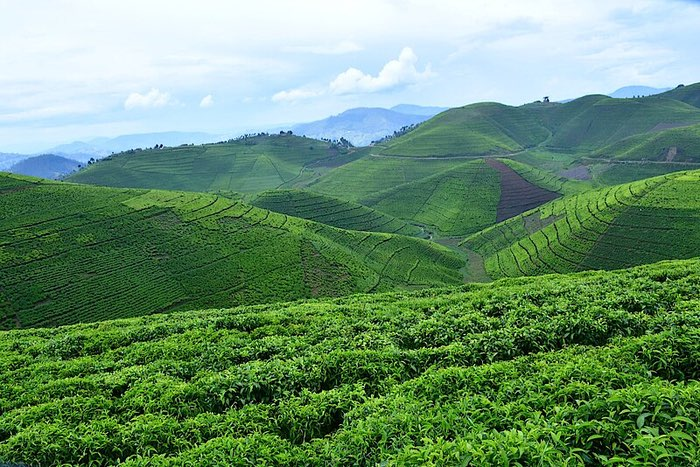
Rwanda’s tea sector plays a crucial role in the national economy, generating $114.8 million in the 2023/2024 fiscal year from the export of 38,467.7 tons of processed tea. This income significantly contributes to the country’s agricultural revenue while greatly improving the lives of approximately 50,000 tea farmers organized into 23 cooperatives across the country. Rwanda’s Fifth Strategic Plan for Agriculture Transformation (PSTA 5) for 2024-2029 targets generating tea income of 175 million USD from 58,600 metric tons of processed tea by 2029.
To achieve this ambitious milestone, NAEB is spearheading the Government of Rwanda’s ambitious initiative to expand and revitalize the tea industry, as part of the country’s broader efforts to boost agricultural exports.
In alignment with NAEB’s mandate to promote agro-export commodities, significant tea expansion and infilling activities are scheduled to commence in October 2025 under the ongoing Promoting Smallholder Agro-Export Competitiveness Project (PSAC), co-funded by the Government of Rwanda and the International Fund for Agricultural Development (IFAD).
Over the next four years, a total of nearly 40 million seedlings will be planted across 2,410 hectares as part of the expansion and infilling process. The first-year target includes infilling 310 hectares of existing plantations while also expanding by an additional 600 hectares.
The ongoing initiative to expand and revitalize Rwanda’s tea industry is making significant progress. It has commenced on a positive note, highlighted by the crucial step of producing high-quality tea seedlings, which are essential for the success of this ambitious transformation project.
So far, 8,538,000 tea seedlings have been produced, contributing towards the 19,934,000 seedlings needed to meet these annual targets. The tea expansion and infilling will be implemented across 1,790 hectares and 620 hectares respectively, that are distributed in 6 Tea cooperatives in Karongi, Nyamasheke, Rutsiro, and Nyabihu in the Western Province, Nyaruguru in the Southern Province, and Rulindo in the Northern Province.
This plentiful production of quality tea seedlings is generating jobs for local youth and women through a community approach, which is expected to improve their living standards. This large-scale seedling production will serve as a crucial foundation for enhancing the productivity of existing tea plantations while also facilitating the establishment of new ones.
In addition to providing free tea seedlings for planting by farmer cooperatives across six targeted districts, 226,000 agroforestry seedlings will be distributed, free of charge, for planting on 2042 hectares. These trees will enhance soil fertility, conserve water, provide shade, prevent erosion, and promote biodiversity.
Furthermore, tea farmer cooperatives will receive tea leaf collection trucks, electronic weighing scales, servers for tea data storage, and regular training on new farming techniques through Farmers Field Schools (FFS) to boost production.
Mr. Alexis NKURUNZIZA, Traditional commodities (including tea) Division Manager at NAEB, said: “By enhancing Rwanda’s tea value chain, NAEB is positioning the country to increase both the quality and volume of its tea exports, which are vital to Rwanda’s economy. This initiative is not only about growing the tea sector but also about providing sustainable economic opportunities for smallholder farmers in the tea-producing regions.”
With these efforts, NAEB continues to play a pivotal role in driving Rwanda’s agricultural export sector, fostering long-term growth, and ensuring the competitiveness of Rwanda’s tea industry on the global market. (End)
